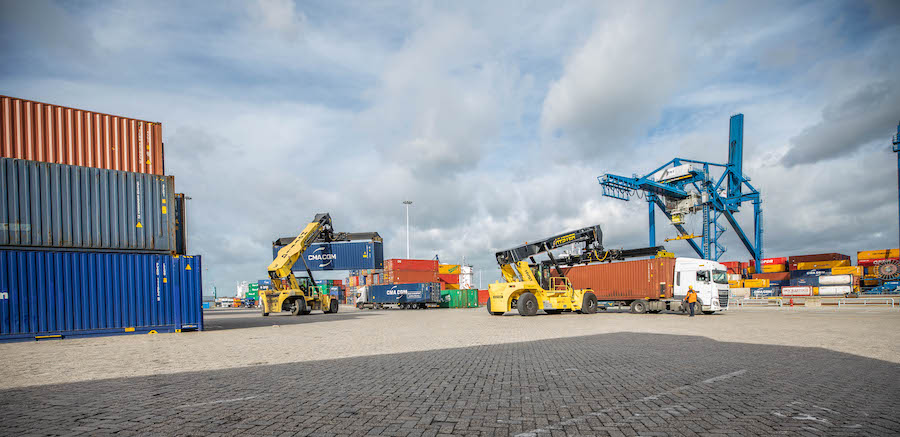Hyster has added new fuel options for its Big Trucks and A Series IC forklifts, allowing them to run on HVO 100 (Hydrotreated Vegetable Oil) that meets the EN15940 standard. Furthermore, the H2.0-3.5A A Series lift trucks can also use GTL (Gas to Liquid) and BtL (Biomass to Liquid) fuels. These diesel alternatives have the potential to reduce CO2 emissions by up to 90%, thereby assisting businesses in reducing their carbon footprint.
“While electrification of higher capacity lift trucks is moving forward, it is not yet the right solution for every application,” explains Rob Maris, Product Strategy Manager Big Trucks for Hyster Europe. “The initial cost of electric lift trucks along with the infrastructure and charging upgrades required can often delay adoption. And for the largest trucks, battery and hydrogen fuel cell technology simply isn’t there yet. Switching to greener fuel types, such as HVO100, may offer a stop-gap solution for some businesses to reduce their carbon footprint while moving towards electrification.”
Hyster has made it possible for its Big Trucks, A Series IC forklifts, Empty Container Handlers, and ReachStackers to run on alternative fuels, including HVO 100, GTL, and BtL. HVO 100 is a bio-based liquid fuel made from a variety of vegetable oils and animal fats, and can be used in conventional diesel engines, either alone or blended with diesel. GTL fuel is derived from natural gas and produces fewer emissions and pollutants than traditional diesel, while BtL fuels are synthetic fuels made from biomass that reduce emissions of particulate, hydrocarbons, CO, and CO2.
The A Series lift trucks can be delivered from the factory ready to use alternative fuels, while an aftermarket kit is available for the Big Trucks, Empty Container Handlers, and ReachStackers. The solution complies with Tier III, Tier IV, and Stage V emissions regulations and can be easily installed in the field or factory-fitted for new equipment. It involves replacing Nitrile Rubber (NBR) seals in the fuel system with FKM seals, a synthetic rubber that is resistant to the effects of ethanol.
The use of HVO 100 may result in a fuel economy reduction of 0 to 6 percent in Big Trucks compared to regular diesel fuel, but it has no negative impact on existing emissions improvement technologies such as Diesel Oxidation Catalysts, Diesel Particulate Filters, or Selective Catalytic Reduction systems. Furthermore, using alternative fuels does not affect the durability of lift truck and container handler engine components and delivers similar engine power output.







